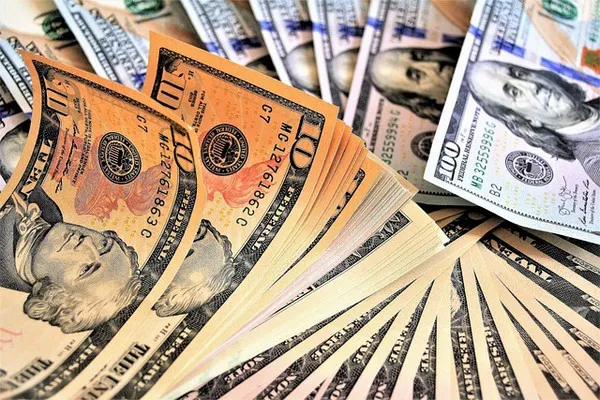In the intricate tapestry of the global economy, the U.S. dollar stands as a linchpin, wielding immense influence as the world’s reserve currency. Any significant fluctuation in its value ripples across financial markets worldwide, particularly impacting stocks and investor sentiment. Understanding the dynamics of a potential dollar crash is crucial for investors seeking to navigate the complexities of such an event.
Explanation of the Dollar’s Role in the Global Economy
The U.S. dollar serves as the primary medium of exchange in international trade and finance, backed by the economic strength and stability of the United States. Its status as the world’s reserve currency means that central banks and institutions hold significant reserves in dollars, reinforcing its dominance in global transactions.
Historical Context
History offers several instances where the dollar’s value experienced substantial fluctuations, causing reverberations in the stock market. For example, the Plaza Accord of 1985 saw coordinated efforts by major economies to devalue the dollar, leading to a surge in U.S. stock prices as exports became more competitive. Conversely, the Asian Financial Crisis of 1997 witnessed a sharp depreciation of Asian currencies against the dollar, triggering a downturn in global equity markets.
Economic Theory
A strong dollar tends to benefit importers by lowering the cost of foreign goods and dampening inflationary pressures. However, it can adversely affect exporters by making their products more expensive in international markets. Conversely, a weak dollar boosts exports but may fuel inflation and prompt central banks to raise interest rates to stabilize the economy.
Direct Effects on Stocks
In the event of a dollar crash, multinational corporations heavily reliant on exports may experience a surge in competitiveness and profitability, leading to stock price gains. Conversely, companies with significant overseas operations may face earnings pressure due to currency translation losses, dampening investor confidence and driving down stock prices.
Indirect Effects on Investor Behavior
Changes in the dollar’s value often spark market volatility as investors reassess their risk exposures and portfolio allocations. A weakening dollar may prompt flight to safety strategies, with investors flocking to assets perceived as more stable, such as gold or foreign currencies. Heightened uncertainty can exacerbate market swings, testing the nerves of even the most seasoned investors.
International Perspective
A depreciating dollar can boost the competitiveness of foreign stocks denominated in other currencies, attracting capital inflows from investors seeking higher returns. However, it may also strain trade relations, leading to retaliatory measures and disrupting global supply chains. International diversification becomes imperative for investors seeking to mitigate currency risk and capitalize on emerging opportunities.
Potential Opportunities
While a dollar crash poses significant risks, it also presents investment opportunities. Commodities like gold and oil often serve as safe-haven assets during times of currency instability, offering potential hedging benefits against depreciating currencies. Additionally, foreign equities may outperform domestic stocks as their earnings get a boost from currency tailwinds.
Risk Mitigation Strategies
To shield their portfolios from the fallout of a dollar crash, investors can employ various risk mitigation strategies. Diversification across asset classes, geographies, and currencies can help spread risk and minimize exposure to any single event. Hedging techniques, such as currency futures or options, provide additional safeguards against adverse currency movements.
Expert Opinions
Economists and financial experts offer valuable insights into the potential outcomes of a dollar crash. While some anticipate short-term turbulence in financial markets, others emphasize the resilience of the global economy and the adaptability of market participants. Regardless of differing views, preparation and proactive risk management remain key principles for investors.
See Also Why is the Dollar Losing Value?
Actionable Advice
In response to a weakening dollar, individual investors can take several practical steps to safeguard their portfolios. Regular portfolio reviews, stress testing against various scenarios, and staying informed about global economic developments are essential. Moreover, maintaining a long-term investment perspective and avoiding knee-jerk reactions to short-term market fluctuations can help navigate uncertainty with confidence.
In conclusion, a dollar crash carries significant ramifications for stock markets and investor portfolios. By understanding the underlying dynamics, assessing potential opportunities and risks, and implementing prudent risk management strategies, investors can navigate the challenges posed by currency volatility and position themselves for long-term success in an ever-changing global economy.


